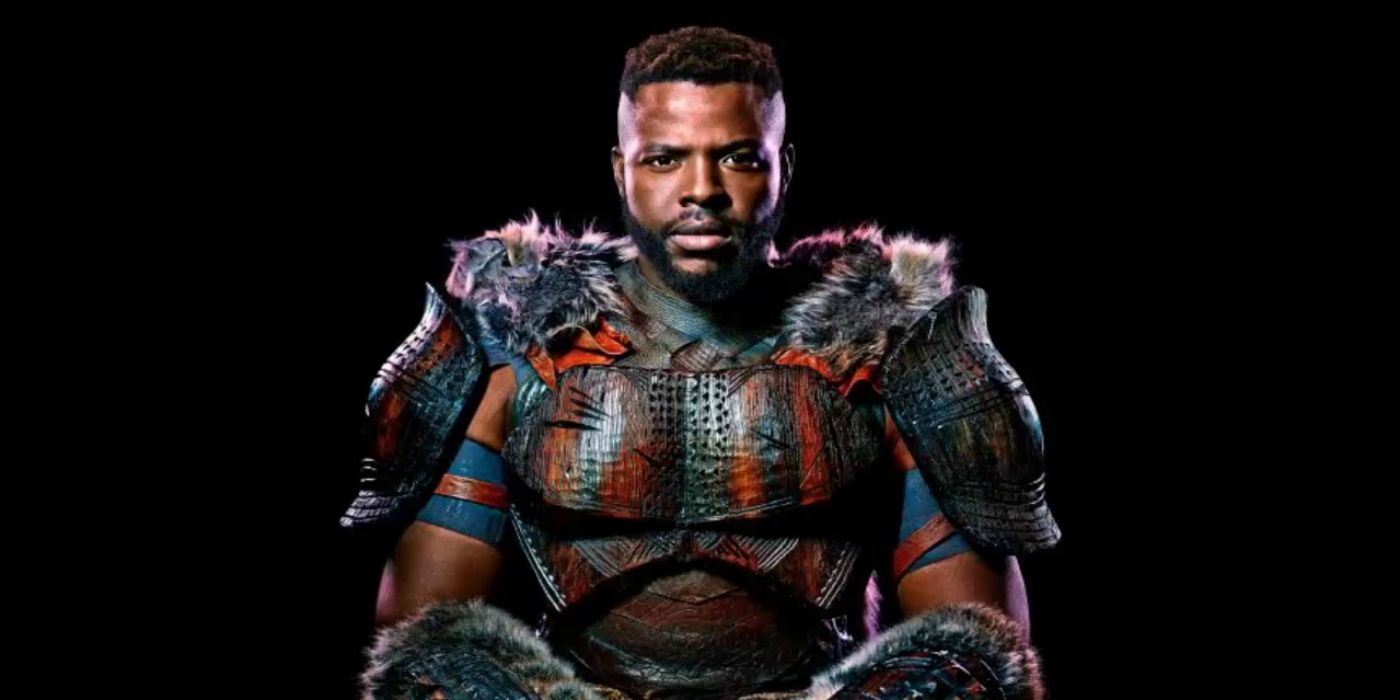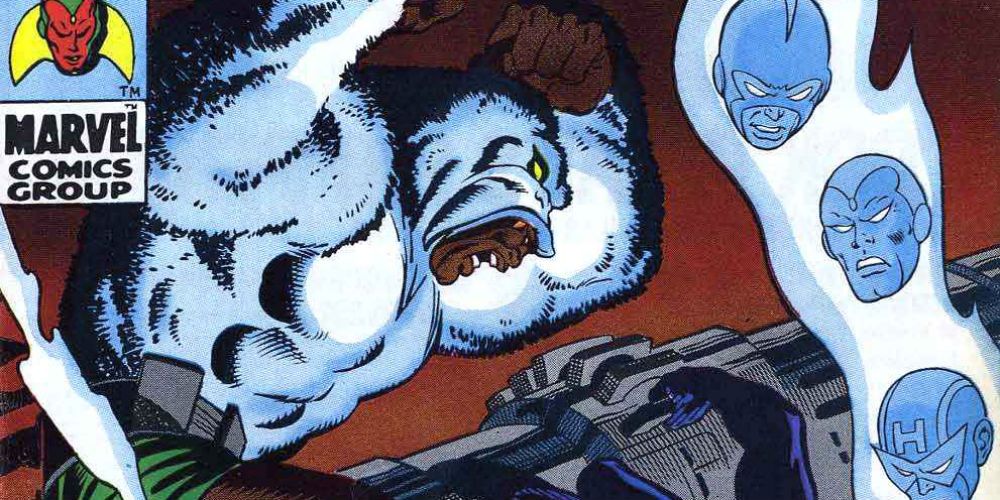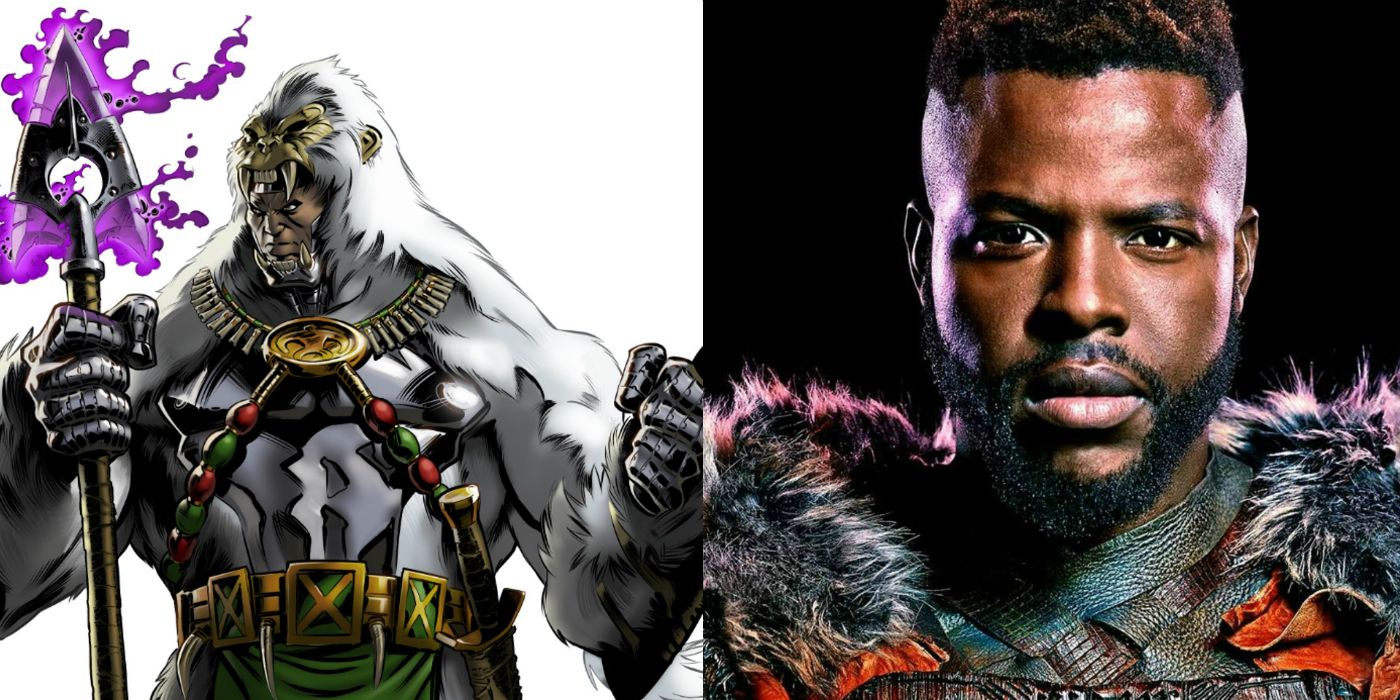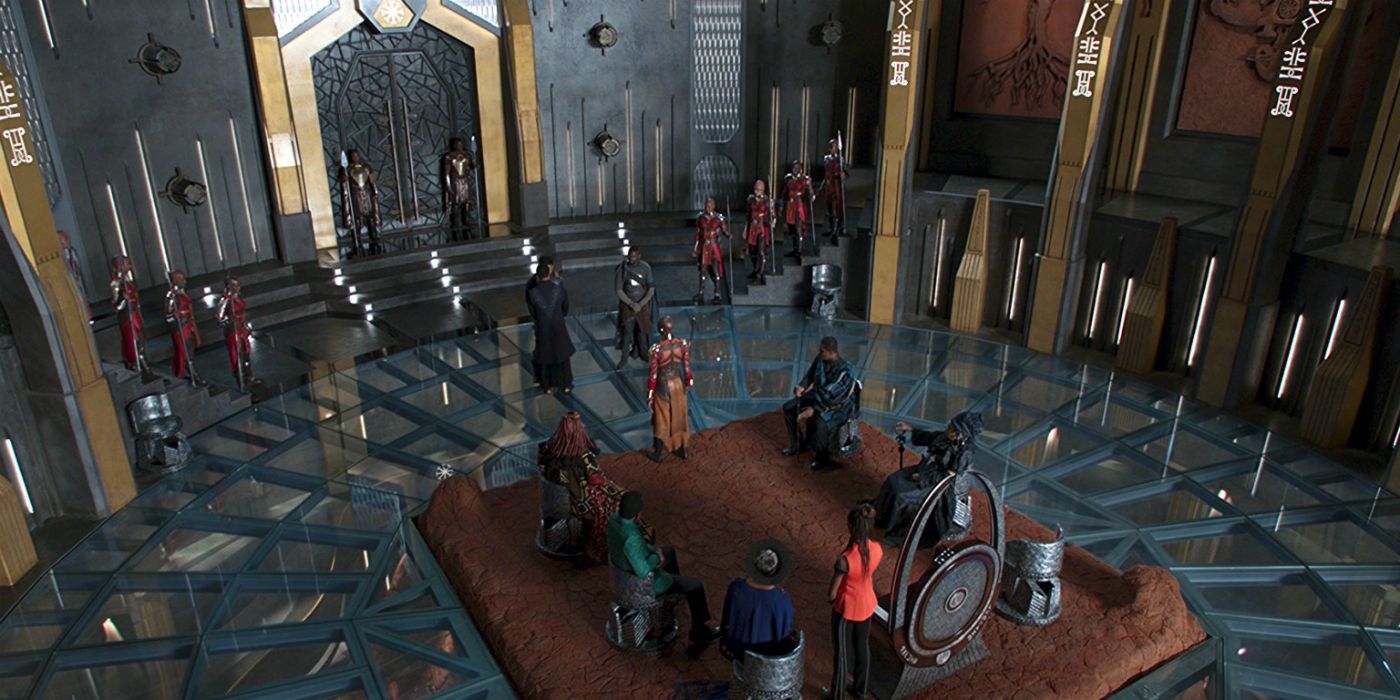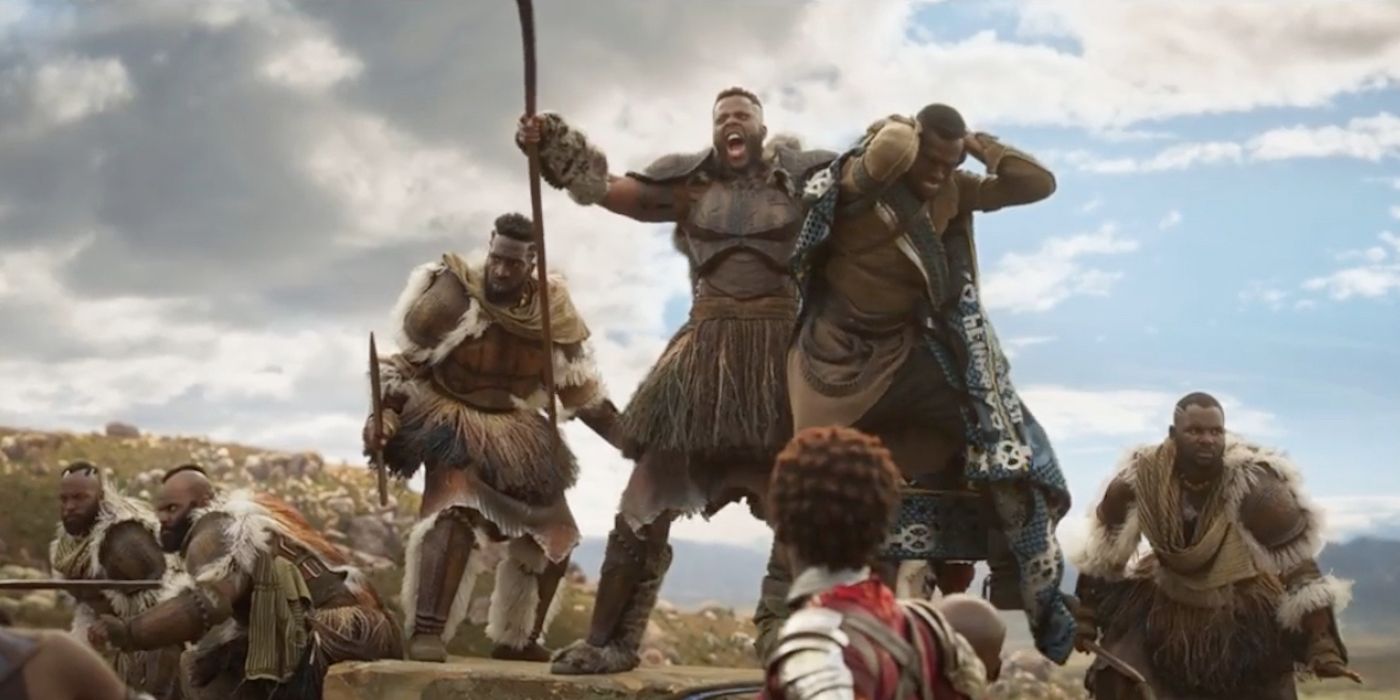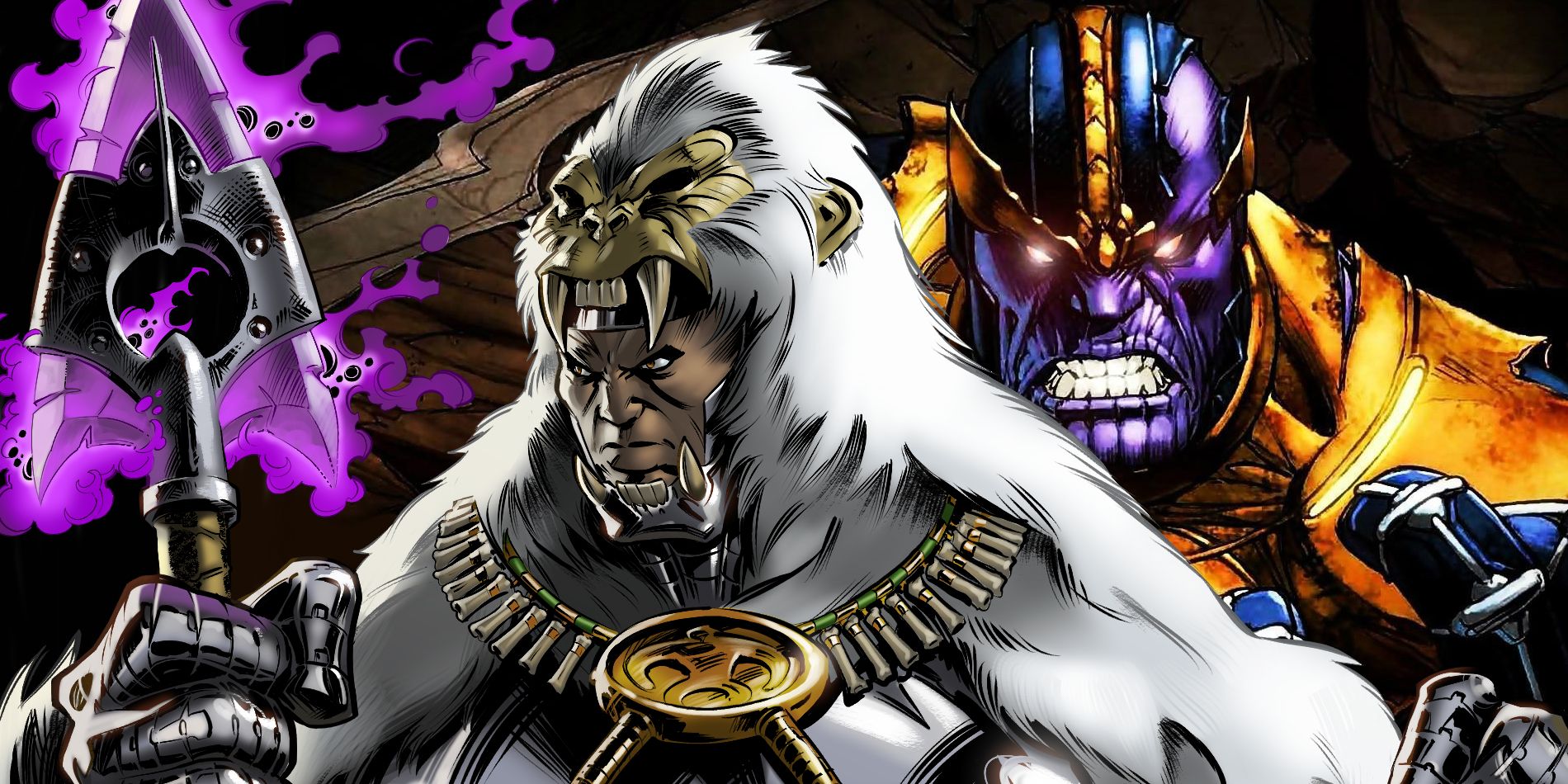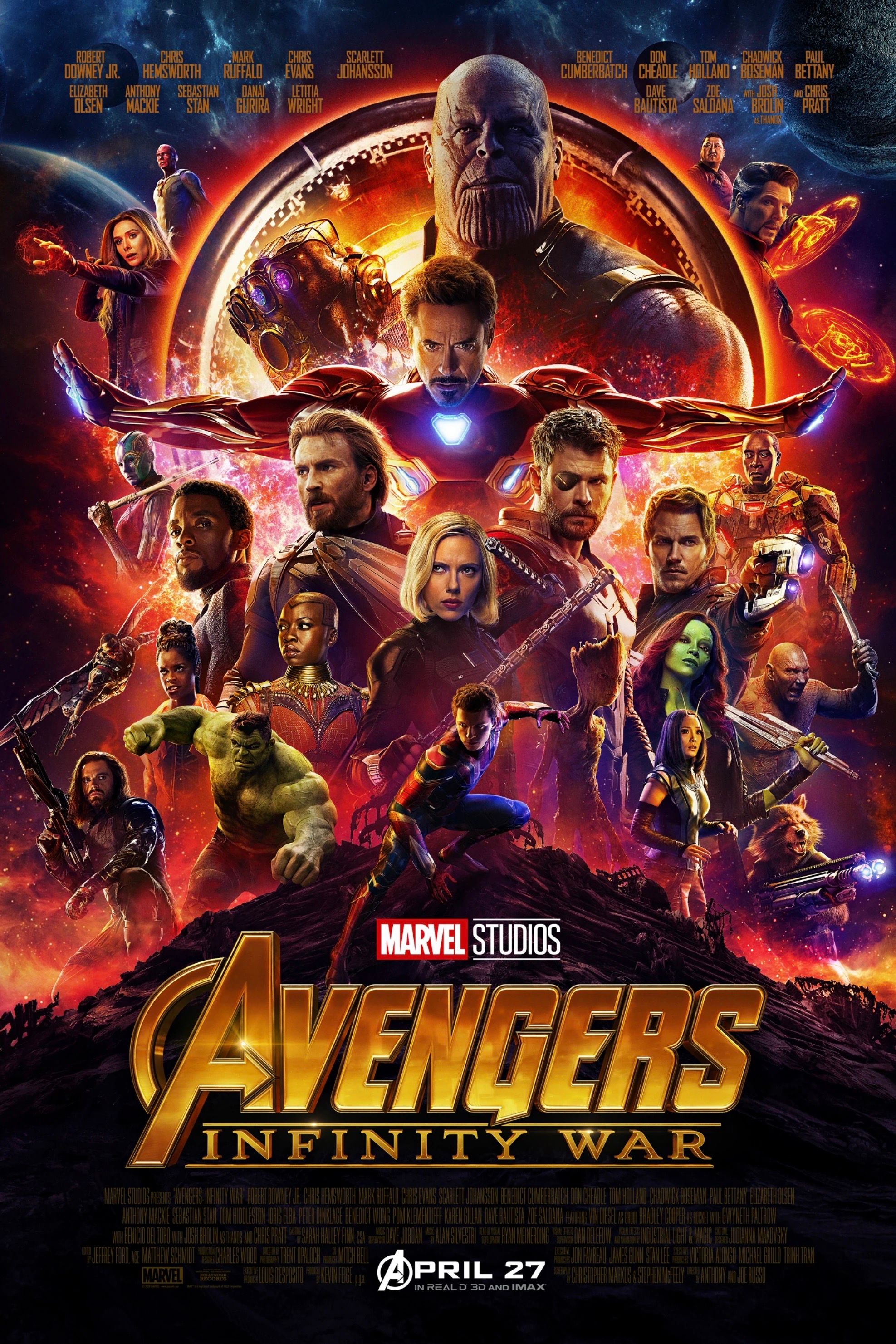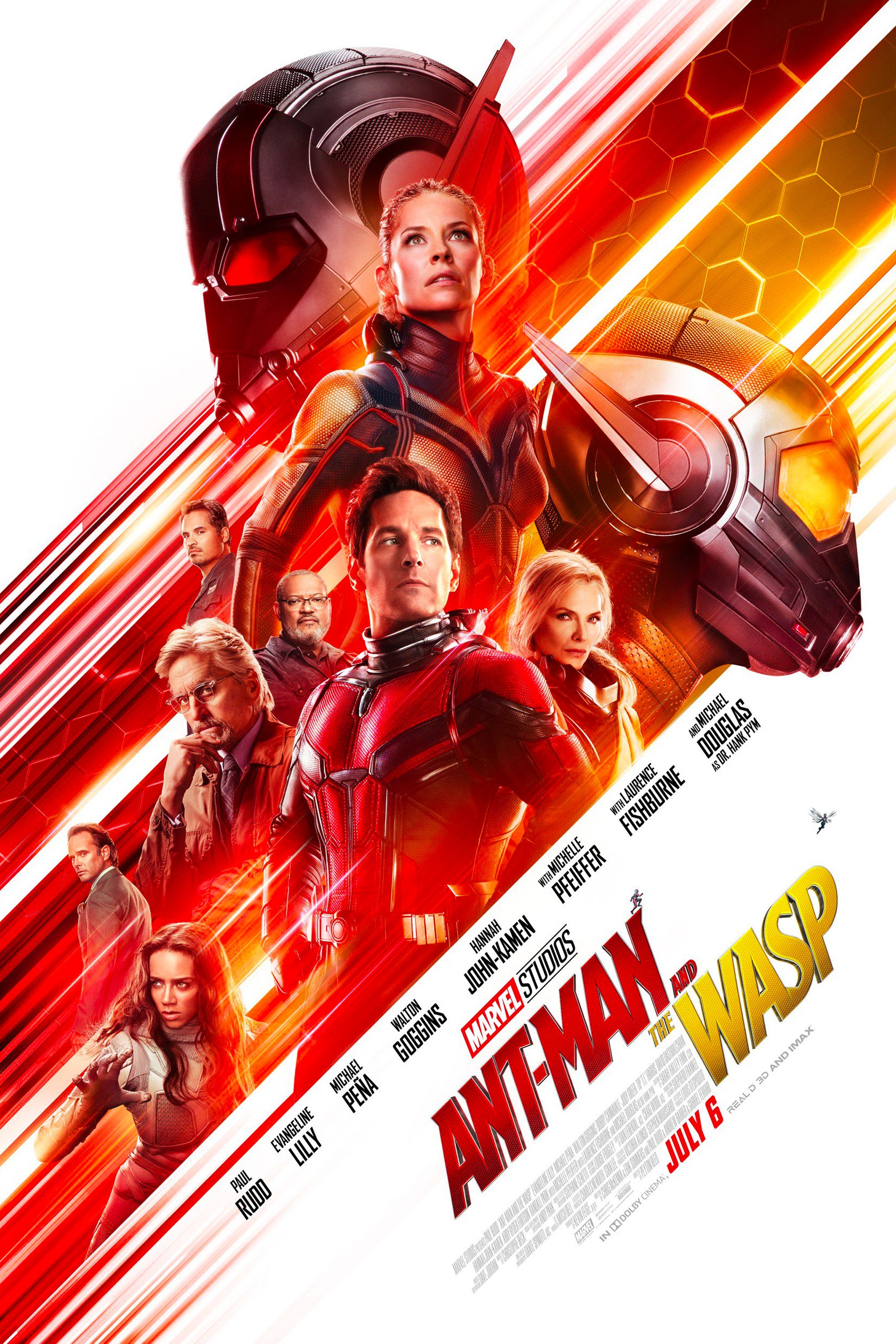Winston Duke's M'Baku was a force to be reckoned with in Marvel's Black Panther. Although the character is traditionally a villain in the comics, the movie reimagined him somewhat and, as a result, the Jabari chieftain became a key ally for T'Challa, playing a major role in the film's third act.But what's next for M'Baku? He's confirmed to appear in Avengers: Infinity War, and beyond that the character seems certain to return in the inevitable sequel, given how much audiences love him. The first film is performing beyond any expectations in the box office, and Marvel's Kevin Feige is already hoping director Ryan Coogler will return. Whether Coogler does sign up for Black Panther 2 or not, the sequel is sure to return to the franchise's Wakandan roots. That means M'Baku, as leader of the Jabari tribe, is a safe bet to reappear.RELATED: How M'Baku the Man-Ape Became Black Panther's Best CharacterWhile it's possible M'Baku could remain an uneasy ally of T'Challa, perhaps a more intriguing idea is the possibility of turning him into the film's principal antagonist.
M'Baku Is A Villain In The Comics
It's important to note that, in the comics, M'Baku is traditionally one of Black Panther's most prominent villains. The character was created by Roy Thomas and John Buscema, and is known to comic book fans as Marvel's "Man-Ape." In the comics, M'Baku is the leader of the White Gorilla Cult; he gained his prodigious strength after feasting on the flesh of Wakanda's White Gorillas. The Man-Ape has traditionally attempted to overthrow T'Challa's rule of Wakanda, and on several occasions has almost succeeded.
As in the film, the M'Baku of the comics deplores Wakanda's technological focus. He stands for tradition, and desires to take Wakanda back to its more primitive roots. Essentially, the conflict between Black Panther and Man-Ape is a battle of ideologies; each has a different vision for Wakanda's future, each pursues it relentlessly.
Black Panther Has Perfectly Adapted M'Baku
The MCU version of M'Baku is a tribal leader, ruler of the Jabari, who has watched with distaste as he sees Wakanda abandon its isolationist heritage. Worse still, as M'Baku pointed out in the film, Wakanda's scientists are now led by a teenager who shows little respect for tradition. King T'Chaka caused a stir among Wakandans when he began working with the United Nations to pass the Sokovia Accords, and when the UN was attacked, T'Chaka son proved unable to protect him. Given the Black Panther is supposed to be the defender of Wakanda and its people, M'Baku argues that this failure proves T'Challa is too weak to be king.
RELATED: Will Black Panther Beat Infinity War At The Box Office?
It's important to understand M'Baku's cultural background. 10,000 years ago, when the first Black Panther unified the tribes of Wakanda, the Jabari were the only tribe who refused to follow the Panther God. Over the millennia, the Jabari have withdrawn to the mountains, establishing their own homeland and watching Wakanda with increasing disgust. M'Baku is shaped by that culture, and he embraces it. Worse still in M'Baku's view, Black Panther ends with T'Challa reaching out to the world for the first time in Wakandan history, and offering to share the nation's knowledge and resources. To the isolationist M'Baku, this would be a fundamental rejection of Wakanda's traditions.
A Time Of Change For Wakanda
Ironically, M'Baku himself has introduced another dramatic change to Wakandan society. Under his leadership, the Jabari have returned to Wakandan society; in a scene towards the end of the movie, we see that M'Baku has even taken his traditionally vacant seat on the Wakandan Council. It's a break with the Jabari's traditional role in Wakanda, and also perfectly positions M'Baku to cause problems for T'Challa.
On the one hand, T'Challa is pushing for Wakanda to involve itself in the world's affairs as never before. On the other, the King now has M'Baku as a member of the Council - an adviser who will oppose everything T'Challa wishes to stand for. Black Panther has set up a new status quo in Wakanda, one where two powerful forces are pulling the fictional African nation apart at the seams; one represents a globalized future, and the other a traditional past. There's no way to easily resolve this tension.
Meanwhile, the film introduced a complex honor-bond between T'Challa and M'Baku. M'Baku is honorable enough to believe that T'Challa is the rightful king, the one who triumphed at Warrior Falls. That said, he also knows the King owes him an honor debt. Without the Jabari's help, T'Challa's forces would have been defeated by W'Kabi's Border Tribe. They would then have intervened in the duel between Killmonger and T'Challa, ensuring Killmonger remained ruler of Wakanda. For probably the first time in Wakanda's history, the King owes his throne to the Jabari. No doubt M'Baku, who clearly believes in a transactional code of honor, will call in that debt at some point.
M'Baku Is The Perfect Follow-Up to Killmonger
It's clear Black Panther has left Wakanda fragmented, and its traditions will now be called into question as never before. After all, in his most destabilizing act Killmonger destroyed the Heart-Shaped Herb - possibly even all of it. That could actually bring an end to the line of Kings and Black Panthers, meaning the nation's future is in question as never before. M'Baku will be a powerful voice in that context, one calling Wakanda back from interaction with the rest of the world.
It's important to stress that M'Baku is more of an antagonist than he is a villain. If he is T'Challa's opponent in the sequel, it will be for the very best of reasons. As Winston Duke explained in The Art of Black Panther, M'Baku plays an important role in Wakandan society. He "reminds them of tradition, of the gods... He's laden with things that matter."
The conflict in Black Panther was as much ideological as anything else; the fundamental question facing Wakanda was, "How should we relate to the rest of the world?" That thematic concept runs through M'Baku's character arc too, and makes him a perfect successor for Killmonger. Meanwhile, that complicated relationship between M'Baku and T'Challa - those bonds of honor - will make the conflict more personal than ever before for the Black Panther.
The Impact of Avengers: Infinity War
It's important to remember that Wakanda will return in Avengers: Infinity War. Trailers have teased a tremendous action sequence, with waves of Thanos's Outriders launching a terrifying attack on the African nation. Even with the help of the assembled Avengers, that invasion is sure to leave scars on Wakandan society.
RELATED: Every Black Panther Character Returning In Avengers: Infinity War
For M'Baku, it's likely this would indicate that the gods opposed T'Challa's approach. Viewed from his perspective, Wakandan interventionism has a troubled history. When the War Dogs began their spy-work for King T'Chaka, it ultimately led to Killmonger. When T'Chaka sent Wakandan people into other nations as part of an outreach mission, some died in Lagos. And when T'Chaka himself went to the United Nations, he died. Now, in the ultimate demonstration of the gods' displeasure, T'Challa has revealed Wakanda to the world - and the result has been a full-on alien invasion. M'Baku certainly has a compelling argument. In the comics, the invasion of Thanos and the Black Order ultimately became one of the most soul-destroying events in Wakandan history. No doubt T'Challa's leadership will be called into question after Avengers 4; and M'Baku will take advantage.
Not every supervillain needs to be evil. In the case of M'Baku, the MCU's version is a finely-crafted, three-dimensional character who simply opposes everything the Black Panther stands for. That's sure to lead to conflict down the line, and in so doing to continue the themes of the first Black Panther movie.
MORE: Killmonger Creates A Big Problem For Avengers: Infinity War

